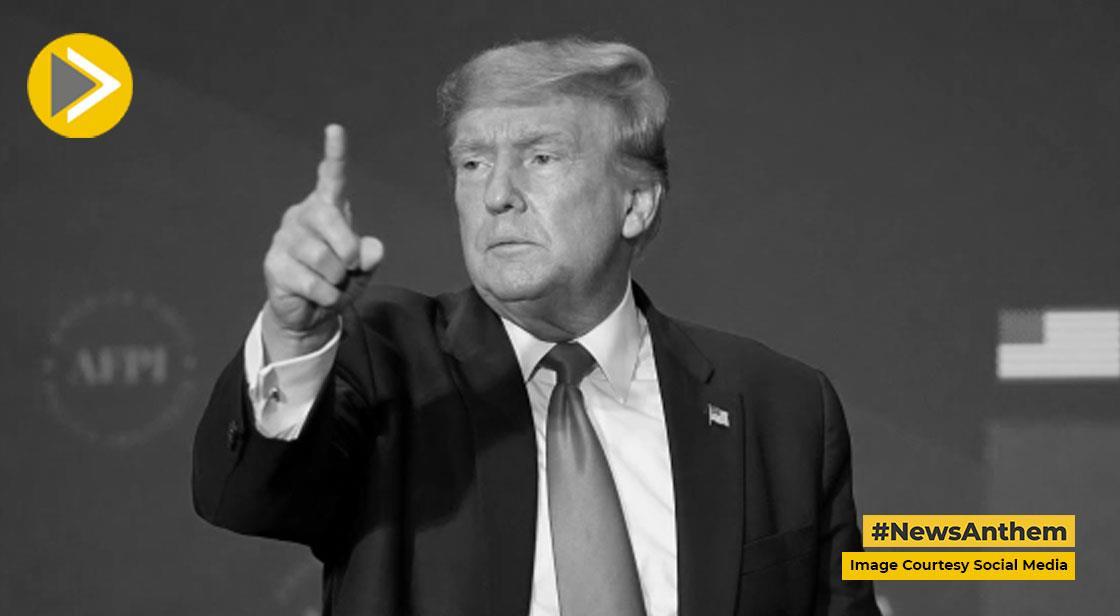Hollywood Seeks Tax Relief from Trump Following 100% Tariffs on Films

News Synopsis
The American film industry is facing growing uncertainty after former President Donald Trump announced plans to impose 100% tariffs on foreign-produced movies. In response, a group of Hollywood actors and production studios have sent a formal letter to Trump, requesting expanded tax incentives to support domestic film and television production.
Actors Jon Voight and Sylvester Stallone were among the signatories urging the government to create a more competitive tax environment that brings jobs and production back to the United States.
Industry’s Call for Expanded Tax Incentives
According to a report by Source, the letter highlights how key changes to the tax code could revitalize the U.S. media and entertainment sector. The group called on Trump to champion “potent tax measures” that would strengthen the competitive position of American film and TV creators.
“These potent tax measures would immediately make America more competitive, expand the American media industry, bring jobs back to America, and support the independent spirit of American business,” the letter reads.
Studios and Unions Thank Trump for Industry Support
Interestingly, the letter avoids directly criticizing Trump’s proposed tariffs on overseas films. Instead, the studios and labor unions expressed appreciation for his earlier support of the entertainment industry and his shared vision to promote domestic film production.
“We appreciate and thank you for the support you have shown our industry,” the letter stated. “We also appreciate your understanding of the need to increase domestic film and television production to bring back American jobs.”
Proposed Tax Code Reforms: Sections 199, 181, and 461
The letter calls for key revisions to three specific sections of the Internal Revenue Code:
-
Section 199: Provides deductions for the domestic production of film and TV content. The industry seeks to expand its coverage.
-
Section 181: The creatives are urging lawmakers to increase the cap on deductible production expenditures from $15 million to $30 million.
-
Section 461: The proposed restoration would allow companies to carry back net operating losses, offering financial flexibility during downturns.
These reforms are seen as vital for attracting production projects back to U.S. soil, particularly in an increasingly competitive global media landscape.
Trump Labels Foreign Films a National Security Threat
Trump’s proposed 100% tariff on foreign-made films came via a post on his social media platform, Truth Social. In his message, he referred to international productions as a "national security threat" to the American entertainment industry. He also expressed concern about foreign "messaging and propaganda" entering the U.S. through films.
Though Trump didn’t offer details on how or when the tariffs would be implemented, he mentioned plans to meet with industry leaders to discuss the proposal further.
Economic Impact and Industry Concerns
Industry experts have warned that imposing steep tariffs on foreign films could significantly raise the cost of production and distribution in the U.S. These added expenses might also affect co-productions and global box office dynamics, further complicating revenue streams for American studios.
While Trump’s proposal aims to boost local employment and media output, critics argue that such protectionist measures may backfire, limiting creative collaboration and international storytelling.
Hollywood’s Strategic Move to Secure Domestic Support
Hollywood’s appeal to Trump marks a strategic shift. Rather than confront the tariffs head-on, industry stakeholders are aligning with Trump’s broader goals of strengthening domestic production and bringing jobs back to American soil. By doing so, they hope to secure critical tax advantages that can shield them from the financial impact of any new tariffs.
Conclusion
As the U.S. entertainment industry navigates a volatile political and economic environment, tax reform is emerging as a key lever to preserve its global competitiveness. With Trump’s proposed film tariffs looming, Hollywood’s call for tax incentives could shape the future of American film production.
You May Like









